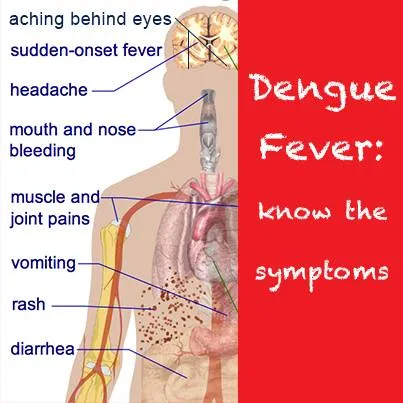Dengue fever is a mosquito-borne viral disease that is common in tropical and subtropical regions around the world. The illness is caused by the dengue virus, which is transmitted to humans through the bite of infected Aedes mosquitoes. Dengue fever can range from mild to severe, with symptoms often resembling those of the flu. In severe cases, dengue fever can lead to a potentially life-threatening condition known as dengue hemorrhagic fever.
Symptoms of Dengue Fever
The symptoms of dengue fever typically appear 4-10 days after being bitten by an infected mosquito. Common symptoms include:
- Fever
- Severe headache
- Pain behind the eyes
- Joint and muscle pain
- Nausea and vomiting
- Rash
In severe cases, dengue fever can also cause:
- Bleeding from the nose or gums
- Bruising easily
- Severe abdominal pain
- Persistent vomiting
- Difficulty breathing
Treatment Options for Dengue Fever
There is currently no specific treatment for dengue fever, and most cases can be managed with supportive care. If you suspect you have dengue fever, it is important to seek medical attention immediately. Your healthcare provider may recommend the following treatment options:
1. Rest and Hydration
One of the most important aspects of dengue fever treatment is to rest and stay hydrated. Drinking plenty of fluids can help prevent dehydration, which is common in dengue fever patients due to fever and vomiting. It is important to drink water, oral rehydration solutions, or electrolyte-rich drinks to replenish lost fluids and electrolytes.
2. Pain Relief
Over-the-counter pain relievers such as acetaminophen can help reduce fever and relieve pain associated with dengue fever. Avoid taking aspirin or nonsteroidal anti-inflammatory drugs (NSAIDs) such as ibuprofen, as they can increase the risk of bleeding.
3. Medical Monitoring
If you have severe dengue fever or are at risk of developing complications, your healthcare provider may recommend hospitalization for close monitoring. In severe cases, dengue fever can lead to dengue hemorrhagic fever, which can be life-threatening if not treated promptly.
4. Blood Transfusion
In cases of severe dengue hemorrhagic fever, a blood transfusion may be necessary to replace lost blood and platelets. This can help prevent serious complications such as shock and organ failure.
5. Prevention
Preventing mosquito bites is key to preventing dengue fever. You can reduce your risk of dengue fever by taking the following precautions:
- Use insect repellent
- Wear long-sleeved shirts and pants
- Use mosquito nets while sleeping
- Eliminate standing water around your home
Conclusion
Dengue fever is a common viral illness that is spread by mosquitoes in tropical and subtropical regions. While there is no specific treatment for dengue fever, most cases can be managed with supportive care. If you suspect you have dengue fever, it is important to seek medical attention immediately. By following preventive measures and seeking prompt treatment, you can reduce your risk of severe complications from dengue fever.
#Dengue #Fever #Symptoms #Treatment #Options


